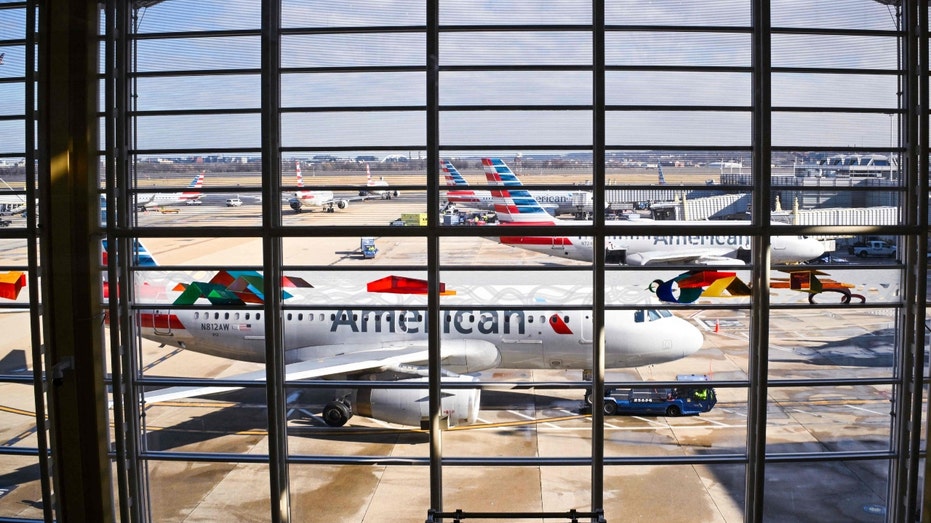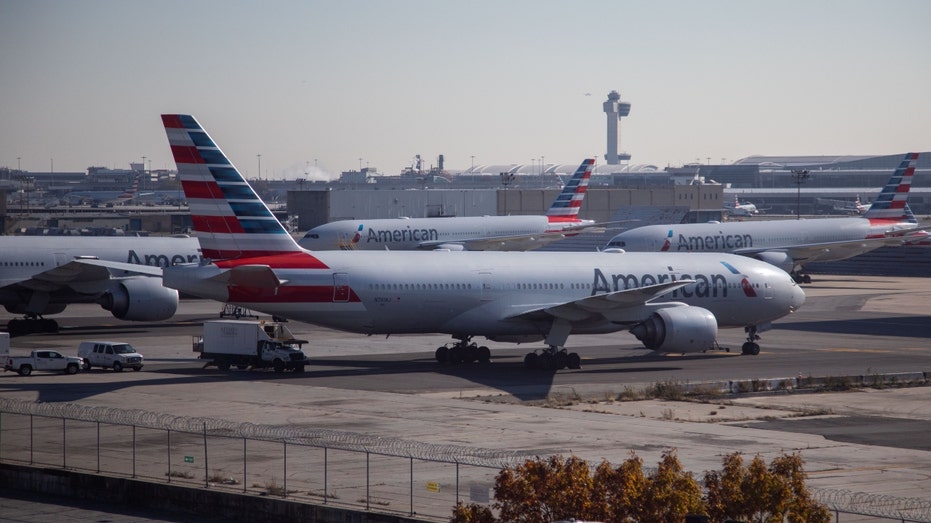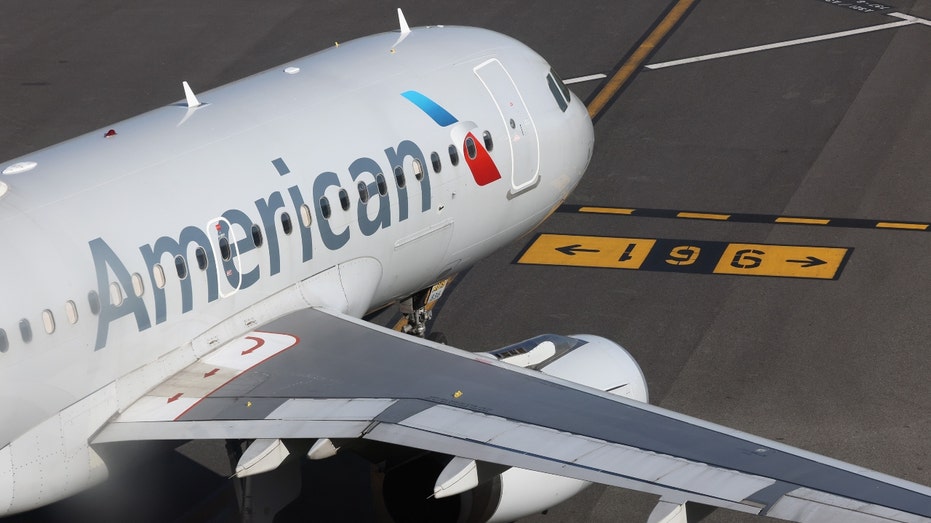American Airlines pilots say 'reckless' cockpit procedure changes could hurt safety
A union that represents American Airlines pilots claimed actions were 'unwise and unsafe'
Delta Air Lines CEO Ed Bastian: Every customer gets free Wi-Fi that works
Delta Air Lines CEO Ed Bastian discusses solutions to solving the pilot shortage and reveals if the airline will ever deploy drone passenger carriers on 'The Claman Countdown.'
A union that represents American Airlines pilots is reportedly raising concerns about new cockpit procedures, claiming that pilots have not been given enough time or training.
In a Jan. 2 statement, the Allied Pilot Association said that American Airlines Flight Operations management was attempting to get around robust safety-related pilot training by unilaterally imposing operational changes using a handout.
According to USA Today, APA spokesperson Captain Dennis Tajer said they had also received updates to the operating manual and a short video with a general overview of the changes that he said wasn't specific to the aircraft American pilots fly.
"While APA does not oppose fleet harmonization, we are steadfast in our commitment that pilots must be properly trained BEFORE operating with passengers. This training must be developed in a stakeholder safety culture that acknowledges and addresses concerns raised by APA. To date, that has not occurred," the union stated. "This attempt to train by bulletin, while ignoring serious safety concerns and well-established best practices, runs the risk of dramatically eroding margins of safety."
AIRLINES EXPECTED TO OFFER FLIGHT DEALS, BUT THEY'LL BE SHORT-LIVED

American Airlines airplanes sit on the tarmac of Reagan National airport in Arlington, Virginia, on December 23, 2022. ((Photo by MANDEL NGAN/AFP via Getty Images) / Getty Images)
"Simply put, management’s actions are unwise and unsafe," it asserted, also noting that operational changes would alter how pilots communicate, coordinate and execute flight safety duties at some of the most "high-threat times of flight."
| Ticker | Security | Last | Change | Change % |
|---|---|---|---|---|
| AAL | AMERICAN AIRLINES GROUP INC. | 15.24 | +1.08 | +7.63% |
The statement accused the airline of "placing profits before people," including passengers, and said it has appealed to a Federal Aviation Administration Principal Operations Inspector "without results or relief from this deadline."
They urged pilots to thoroughly review operational and manual changes and discuss any concerns before executing safety duties.

American Airlines airplanes parked at John F. Kennedy International Airport (JFK) ahead of the Thanksgiving holiday in New York, US, on Wednesday, Nov. 23, 2022. ( Photographer: Michael Nagle/Bloomberg via Getty Images / Getty Images)
GET FOX BUSINESS ON THE GO BY CLICKING HERE
"Our commitment to safety is unwavering, which is why we regularly update our Aircraft Operating Manuals to ensure they represent the latest and safest information for our pilots. These changes represent industry best practice and ensure improved crew coordination and consistency across fleet types so that our pilots can easily transition across different aircraft if they choose," American Airlines said in a statement to FOX Business.
"These updates have been underway since 2021 and have been a coordinated effort with APA’s Training Committee. Additionally, the approach to familiarizing our pilots has been approved by the FAA," it added.

NEW YORK, NEW YORK - NOVEMBER 10: An American Airlines jet moves along the runway at Laguardia AIrport on November 10, 2022, in the Queens borough of New York City. ((Photo by Bruce Bennett/Getty Images) / Getty Images)
However, Tajer claimed there had not been any partnership with the APA on these particular changes, and that the union had asked for a delay in implementing them, which was refused by American Airlines.
The pilot said a request for the FAA to intervene was also declined.
CLICK HERE TO READ MORE ON FOX BUSINESS
"The FAA requires airlines to have robust safety management systems that enable employees to report safety concerns," the FAA told Fox Business in an email. "The agency reviews those employee reports daily to ensure the safety of an airline’s operations."
In a Jan. 1 letter from management that Tajer shared with USA Today, pilots were advised that: "during this learning period, the changes are small enough that mixing the new with our current callouts and procedures would not bring undue risk."
"On the flight deck, mixing procedures – ones that are no longer valid with ones that are – is reckless," Tajer said.





















